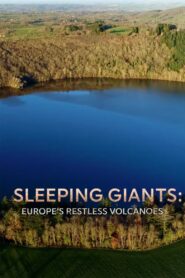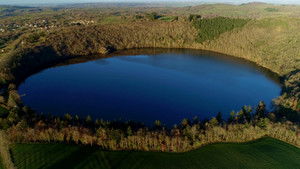
Video Sources

Synopsis
All over Europe, the ground is rumbling. The eruption of Cumbre Vieja on the Spanish archipelago of the Canary Islands in 2021 and that of Eyjafjallajökull in Iceland in 2010 are here to remind us that the Old Continent isn’t safe from major volcanic events. Their consequences, whether human, economic, or environmental, can turn out to be disastrous for the populations. In total, Europe comprises around one hundred active volcanoes, of which about thirty are located within the territory of the European Union. All have experienced at least one eruptive phase in the last 10,000 years and are hence considered by the scientific community to be potentially dangerous to this day. Should these sleeping monsters ever awake, they would cause huge disasters, as most of them are in highly populated areas such as the Eifel volcanic zone in Germany or Mount Vesuvius right next to the city of Naples in Italy.
Original title Volcans Menace Sur L'Europe
TMDb Rating 8 1 votes


























